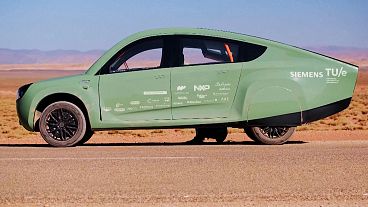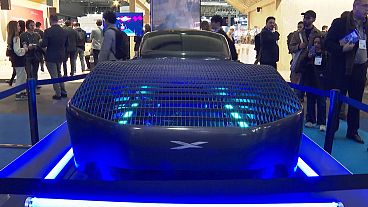Citroen says its new EV is the “first European affordable electric car”.
Citroen has unveiled what it claims is the “first European affordable electric car”, as European manufacturers look to stand up to the challenge presented by Chinese electric vehicle (EV) manufacturers on the continent.
The French car maker revealed its ë-C3, which it says is the first all-electric B-segment hatchback to be offered in Europe by a European manufacturer at this price point. Prices will start just under €25,000.
It will be available from early 2024, and offers a 44kWh battery pack which can run the car for up to 320 km.
One of the main criticisms of the drive towards fully electric cars in Europe is the cost of buying one.
According to the European Automobile Manufacturers’ Association (ACEA), there are 20 EU countries that offer incentives for purchasing electric cars, with seven others granting tax reductions or exemptions.
The World Economic Forum meanwhile said research this year shows the cost of owning and running an EV in Europe has come down, and they are now around the same price or cheaper (in terms of total cost of ownership) than petrol or diesel cars.
Thierry Koskas, Citroen’s CEO, said the company was serving a specifically European market need with its “fresh, sharp and comfortable B-hatch that is fully-equipped, specifically designed for and made in Europe, and extremely affordable with on-the-road prices”.
Citroen’s announcement comes amid a European Union probe into low-cost electric cars coming from China.
Launching the anti-subsidy inquiry in September this year, European Commission president Ursula von der Leyen accused China of “distorting our market”.
The electric vehicles market is a “crucial industry for the clean economy” in Europe, she said, but “global markets are now flooded with cheaper Chinese electric cars” whose prices are kept “artificially low by huge state subsidies”.
Europe is the second-largest market for EVs after China. China is by far the biggest manufacturer of EVs in the world.
China has since hit back, warning that the investigation could damage business relations between China and Europe and raise prices for European consumers. China’s EU Chamber of Commerce told the bloc to “think again”, and not resort to “unilateral trade tools to block China’s EVs in the EU and raise their costs.”

















